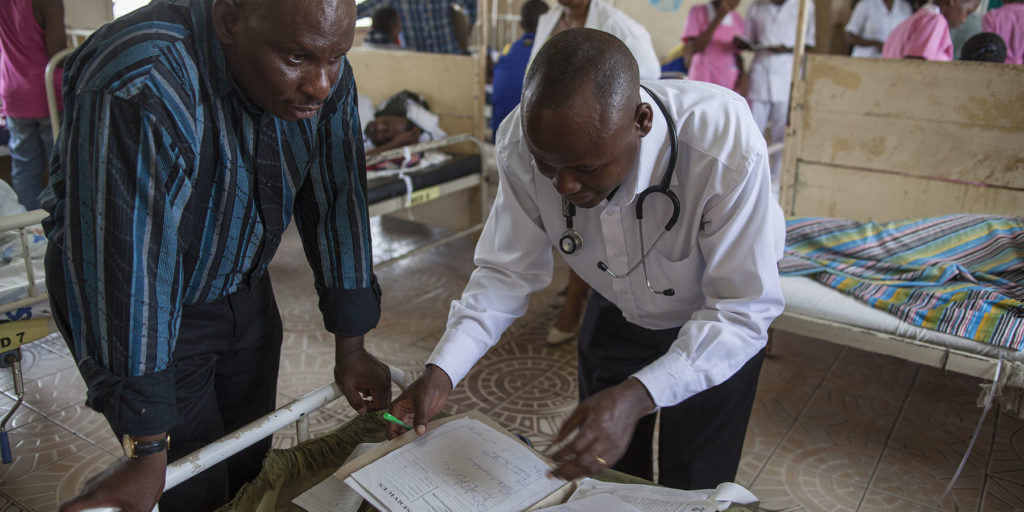
The Programmatic Support Award (PSA)
The Programmatic Support Award (PSA) is designed to provide comprehensive and cost-effective technical support that accelerates evidence-based HIV prevention and treatment program implementation and strengthens health systems in countries supported by the U.S. President’s Emergency Plan for AIDS Relief (PEPFAR). Building on more than 15 years of partnership between ICAP and the U.S. Centers for Disease Control and Prevention (CDC), PSA is designed to fast-track local capacity to meet national, PEPFAR, and UNAIDS goals. Specific approaches include designing and implementing:
- Innovative, effective, and comprehensive capacity-building strategies that strengthen service delivery and human resources for health
- High-quality and evidence-based HIV prevention, care, and treatment services for all populations (including priority and hard-to-reach groups)
- Customized strategic information approaches that generate data-driven evidence to improve HIV policies and programs
The Global Technical Assistance Project (2014-2020)
The Global Technical Assistance (GTA) Project, funded by the U.S. President’s Emergency Plan for AIDS Relief (PEPFAR) through the U.S. Centers for Disease Control and Prevention (CDC), was an ambitious, six-year project comprising 62 individual projects across 24 PEPFAR and Global Fund-supported countries on four continents.
Working in close collaboration with CDC, ICAP leveraged its deep expertise and experience as a technical assistance and capacity-building innovator across the spectrum of HIV technical domains and service areas, including:
- Pediatric and adult HIV care and treatment
- HIV testing
- HIV prevention
- Health systems strengthening
- Human resources for health
- Strategic information and surveillance
- Laboratory
ICAP provided responsive and cost-effective technical assistance to ministries of health, implementing partners, and other stakeholders in partner countries to close gaps in HIV service delivery, strengthen the health workforce, and support ministries of health to collect and use strategic information to inform national policies and programs that drive progress toward HIV epidemic control.
Read the end-of-project report here.
Other (Non-Country Specific):
- Assisted in the development and adaptation of a curriculum on early child development for HIV-exposed and infected infants.
- Helped identify best practices and develop guidelines for transitioning women living with HIV from Prevention of Mother-to-Child Transmission (PMTCT) services to antiretroviral therapy (ART) services in the postnatal period.
- Assisted in the development of guidance documents, training materials, and implementation tools to assist country programs in adopting new optimal pediatric HIV medication formulations.


 With more than 17 years of experience providing impactful and sustainable technical assistance, capacity building and implementation support to ministries of health and other stakeholders in more than 30 PEPFAR-supported countries, ICAP’s teams of global and local experts combine forces to deliver the state-of-the-art approaches to tacking complex HIV service development, scale-up, and quality issues around the world.
With more than 17 years of experience providing impactful and sustainable technical assistance, capacity building and implementation support to ministries of health and other stakeholders in more than 30 PEPFAR-supported countries, ICAP’s teams of global and local experts combine forces to deliver the state-of-the-art approaches to tacking complex HIV service development, scale-up, and quality issues around the world.
